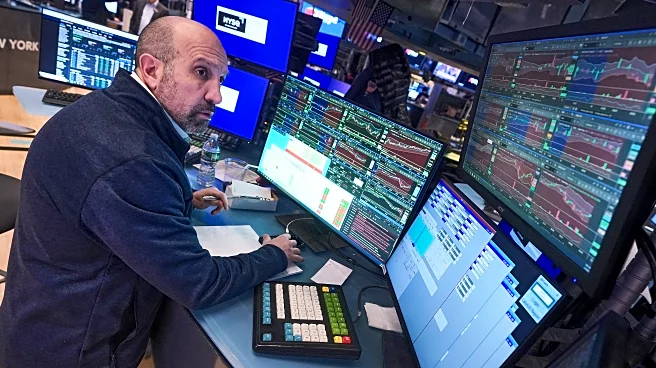What's Happening?
The creators of 'Stranger Things' have revealed that the upcoming fifth season will feature an 18-month time jump from the events of the fourth season. This announcement comes as fans eagerly anticipate
the series finale, which is set in the fictional town of Hawkins during the 1980s. The previous season ended with the antagonist Vecna opening the dimensions of the Upside Down, significantly impacting Hawkins. The show's creators, the Duffer Brothers, have also discussed the possibility of releasing the finale in theaters, citing the enhanced experience of sound and picture quality that theaters provide. The final season is reported to have a budget between 400 to 480 million USD, making it one of the most expensive television productions ever.
Why It's Important?
The decision to include a significant time jump in the final season of 'Stranger Things' is crucial as it allows the narrative to explore new dynamics and developments in the storyline. This move could potentially refresh the series and maintain viewer interest. The substantial budget allocated for the final season underscores the show's popularity and the high expectations for its conclusion. The potential theatrical release of the finale highlights a growing trend in the entertainment industry to offer cinematic experiences for television series, which could influence future productions. The show's conclusion is also significant for its cultural impact, as it has been a defining series for Netflix and a major player in the streaming wars.
What's Next?
As the release of the final season approaches, fans and critics alike will be watching closely to see how the series concludes. The creators and cast are aware of the high stakes, especially in light of the backlash faced by other popular series finales, such as 'Game of Thrones'. The success of the finale could set a precedent for how streaming services handle the conclusions of their flagship series. Additionally, the potential theatrical release could pave the way for similar strategies in the future, blending traditional cinema with streaming content.










